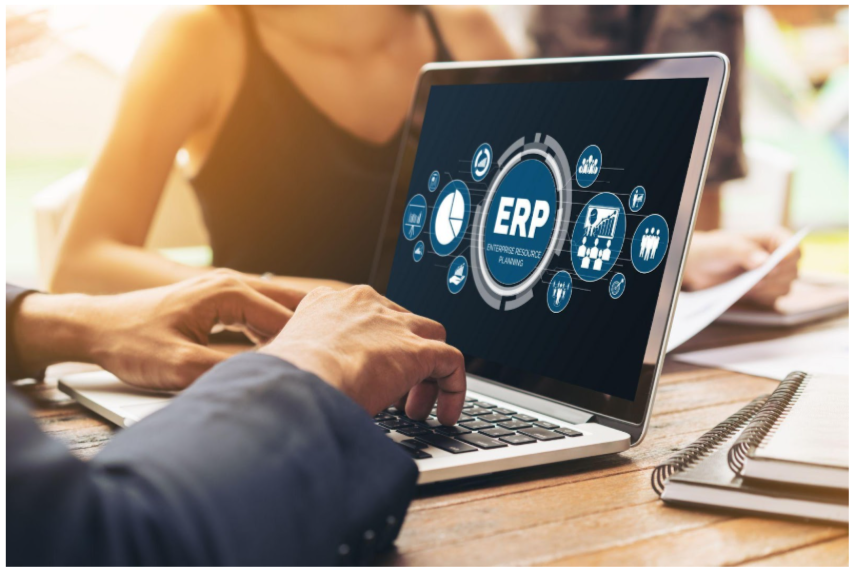As Indian SMEs increasingly go digital, having a trusted ERP service provider has become critical. Without the right expertise, most ERP projects exceed budgets, timelines, or complexity. Research shows that 60–70% of ERP implementations fail due to insufficient resources and misaligned stakeholders.
The solution is partnering with a provider who understands your business sector, offers end-to-end support, and aligns with your objectives. Praxis Infosolutions specializes in ERP consulting services and acts as a reliable ERP implementation partner for Indian SMEs, helping businesses plan, deploy, and optimize SAP Business One effectively.
In this article, we explore eight tangible benefits of choosing the right ERP partner and how it helps streamline operations, improve decision-making, and drive growth.

Key Benefits of Choosing the Right ERP Service Provider
The right ERP service provider delivers more than software implementation. They provide long-term value, operational efficiency, and strategic growth.
1. End-to-End Project Management and Timely Delivery
A quality ERP implementation partner introduces structured project management, risk mitigation, and phased planning. They track milestones, manage budgets, and coordinate stakeholders to ensure ERP goes live on schedule. This reduces surprises, minimises disruptions, and improves adherence to scope. Project managers oversee the implementation through to post-go-live support, ensuring accountability and timely delivery.
2. Structured ERP Implementation Approach and Governance
The right provider not only installs software but also follows a proven ERP implementation methodology: scoping, blueprinting, system design, testing, cutover, and support. Built-in governance ensures stakeholder approvals, change management, and quality checks at every stage. Standardized processes reduce errors, rework, and delays while guaranteeing consistency, transparency, and accountability throughout the project lifecycle.
3. Robust Data Migration and Integration
Data is the lifeblood of any ERP system. Effective providers migrate legacy data, perform thorough cleansing, and ensure accurate field mapping. They leverage certified tools (e.g., SAP Business One Data Transfer Workbench) and integrate ERP with CRM, e-commerce, and other systems seamlessly through APIs or middleware. This ensures data integrity, eliminates duplication, and establishes ERP as the single source of truth across departments.
4. Enhanced Decision-Making with Real-Time Insights
ERP’s real-time visibility is a major advantage. Dashboards, executive reporting, and built-in analytics allow SMEs to monitor KPIs across finance, operations, and sales instantly. Reports indicate that 49.2% of ERP users cite improved real-time data access as a top benefit. Accurate, timely metrics empower leaders to make proactive decisions and optimize business performance.
5. User Enablement through Role-Based Training & Access Control
Even the best ERP system fails without user adoption. The right provider delivers role-specific training, documentation, and ongoing coaching. Role-Based Access Control (RBAC) ensures users access only relevant modules without compromising operations. This approach accelerates adoption, reduces errors, enhances inter-team collaboration and builds confidence while minimizing IT team dependency.
6. Continuous System Optimization and Version Upgrades
ERP is not a one-time project. Post-launch, your provider should monitor performance, tune queries, apply patches, and maintain updates. This ensures the system scales, remains secure, and evolves with business needs, avoiding technology debt and delivering ongoing ROI. Active version upgrades and maintenance prevent bottlenecks, security issues, and performance degradation.
7. Scalable and Future-Ready Solutions
As your business grows, so should your ERP. An effective ERP service provider designs systems for scalability, supporting modular add-ons, cloud-readiness, additional users, and new geographies. This includes future-proofing for innovations like AI integration or hybrid deployment models. Scalability ensures your ERP investment remains viable during expansion or technological change, without requiring a complete redesign.
8. Domain Expertise and Industry-Specific Customization
Generic ERP setups rarely match the depth of industry-specific operations. A reliable ERP implementation partner brings multi-industry expertise, understanding nuances like compliance frameworks, workflow variations, and sector-specific requirements. For example, in ERP for manufacturing, Praxis Infosolutions aligns configurations with production cycles, inventory control, and quality standards. Using pre-built templates and custom modules reduces implementation time and ensures the ERP adapts to your business model rather than forcing your processes into generic frameworks.
Building Long-Term ERP Success with the Right Partner
Choosing the right ERP provider ensures more than a functional system; it lays the groundwork for sustained performance. Post-go-live audits, feedback loops, and incremental improvements are critical. A trusted partner helps avoid common ERP mistakes and aligns technology with evolving business objectives.
Praxis Infosolutions, with its domain expertise and structured processes, exemplifies an ERP implementation partner who transforms ERP into a strategic growth enabler, bridging business objectives, user requirements, and operational efficiency for long-term success.
Conclusion
When implemented with the right partner, ERP transforms operations, improves decision-making, and empowers future growth. Selecting the right ERP service provider is more important than ever. Praxis Infosolutions combines expertise, structured methodology, and continuous support to help Indian SMEs fully realize the benefits of ERP software and thrive.


